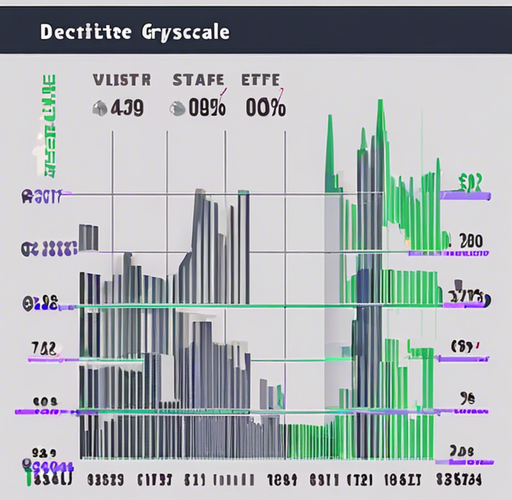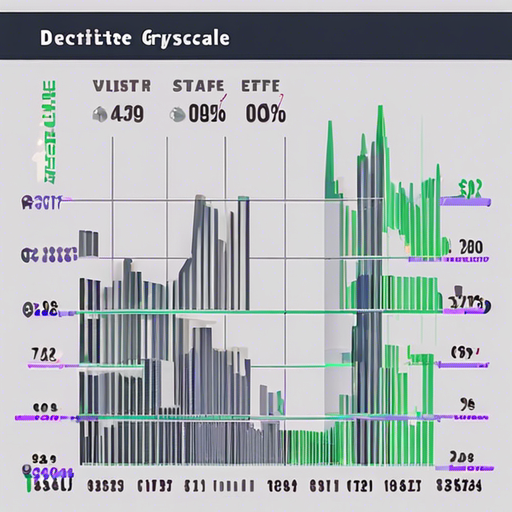Grayscale Confident in Approval of Spot Ether ETFs in May Despite SEC Engagement Concerns
Amidst recent discussions about the U.S. Securities and Exchange Commission’s (SEC) lack of communication with applicants, Grayscale remains confident that spot Ether (ETH) exchange-traded funds (ETFs) will be approved in May.
According to Grayscale’s Chief Legal Officer Craig Salm, the perceived lack of engagement from regulators should not be seen as an indication of the outcome. In fact, Salm believes that the ETFs will be approved, stating, “I personally am not deterred by it and believe the ETFs should be approved.”
Salm also noted that many of the issues commonly associated with spot Ether ETFs have already been addressed, similar to the process leading up to the approval of spot Bitcoin ETFs. These issues include creation and redemption procedures, cash and in-kind models, asset protection, loss prevention, and custody.
He elaborated, “So in many ways, the SEC already has engaged and issuers simply have less to engage on this time,” indicating that the SEC’s involvement in the approval process has already begun.
For those looking to learn more about web 3.0 and the current state of crypto regulation in the U.S., Salm’s post on X provides valuable insights and information. Additionally, Coinbase, one of the leading cryptocurrency exchanges, is a great resource for staying updated on the latest developments in the crypto industry.
ETF Issuers Struggle with Incorporating Staking into Spot Ether ETFs
As the popularity of web 3.0 and cryptocurrencies continues to grow, ETF issuers are looking for ways to incorporate staking into their spot Ether ETFs. However, this presents an additional challenge that must be addressed with the regulator.
Some of the applicants for spot Ether ETFs, including Ark 21Shares, Fidelity, and Franklin Templeton, have expressed concern over the lack of engagement from the SEC. Bloomberg ETF analysts Eric Balchunas and James Seyffart have even reduced their odds for an approved spot Ether ETF in May to just 25%.
In a recent post, Balchunas stated that the lack of engagement from the SEC is a deliberate move rather than simple procrastination, giving the current odds a “pessimistic” outlook. However, others, such as Salm, believe that the recent approval of Ether Futures ETFs and the regulation of these products as commodity futures puts spot Ether ETFs in a strong position for approval.
Salm argues that the high correlation between futures and spot products makes it likely that spot Ether ETFs will be approved, despite the current challenges with incorporating staking into these ETFs. As the fight for crypto regulation in the US continues, ETF issuers must navigate the complexities of incorporating staking into their products while complying with regulations.
Learning About Web 3.0 and Crypto Regulation in the US
For those looking to learn more about web 3.0 and the current state of crypto regulation in the US, there are several key topics to explore. These include understanding the most recent developments in the crypto world, such as the approval of Ether Futures ETFs and the ongoing fight for crypto regulation.
Additionally, individuals can learn about the specific regulations and guidelines that govern the use and trading of cryptocurrencies in the US. This includes understanding the role of institutions like Coinbase and how they are impacted by current regulations.
As the world of web 3.0 and cryptocurrencies continues to evolve, it is important to stay informed and educated on these important topics. By learning about web 3.0 and crypto regulation, individuals can better understand the current landscape and make informed decisions about their involvement in the crypto world.
Crypto Regulation in the US: What You Need to Know About Web 3.0
As the crypto market continues to grow, so does the need for regulation. In fact, Coinbase’s chief legal officer, Paul Grewal, and former CFTC commissioner, Brian Quintenz, both recently came to the same conclusion: the US needs to step up its regulation game.
With major players like BlackRock, VanEck, ARK 21Shares, Fidelity, Invesco Galaxy, Grayscale, Franklin Templeton, and Hashdex all vying for SEC approval for their spot Ether ETF applications, the fight for regulation is heating up.
The SEC has until May 23 to decide on VanEck’s application, and analysts predict that all applicants will receive their fate on that date.
Subscribe to our email newsletter to get the latest posts delivered right to your email.


Comments